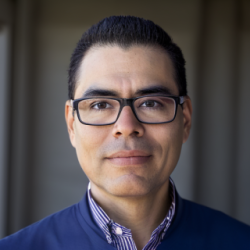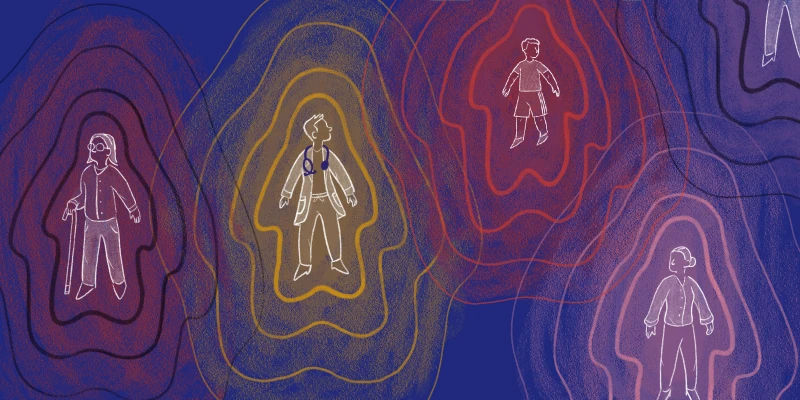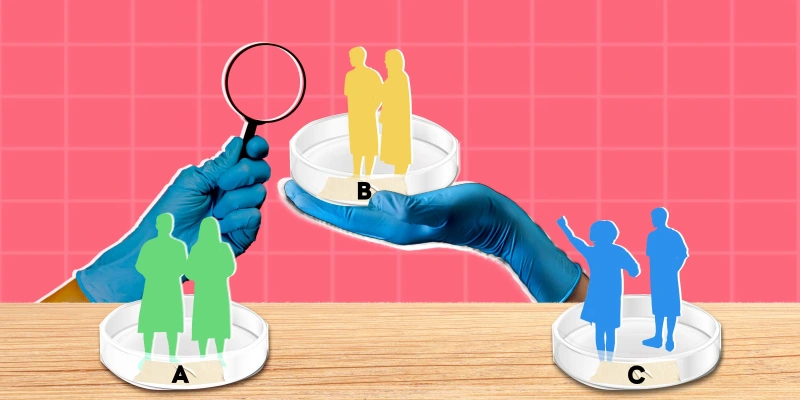Dr. David Nelson will be presenting “Extending Maternal Care After Pregnancy: Improving Maternal Health in Underserved Urban Communities” at ACOG 2024.
What is the central question that your study and/or presentation tries to answer?
A factor contributing to the rising rates of maternal morbidity and mortality is that an increasing number of pregnant individuals have chronic health conditions, and these conditions place a patient at higher risk of complications during pregnancy or postpartum. Cardiovascular-related conditions are the leading cause of pregnancy-related death in Texas, and of these, 43% occur between six weeks to one year after delivery. Thus, improving access and quality of postpartum care is a problem that must be addressed. The postpartum period represents a critical opportunity to understand and improve short- and long-term health by serving as a window to future health. The need for improved postpartum care becomes especially important when considering barriers to health care access for patients after birth. However, knowledge gaps remain in defining effective programs for maternal care after delivery. Potential barriers to the adoption of a postpartum program are physical access to a clinic to provide timely diagnosis and treatment of complications, as well as challenges of health care funding postpartum for underserved communities. This crisis cannot be solved by the health care system alone because social determinants of health (SDOH), such as access to safe housing, transportation, and food, are increasingly recognized as major drivers of health. Because of this, our project aimed to develop and deploy an innovative postpartum program targeting patients living in underserved areas of an urban community.
If applicable, what are the key findings from your study?
In response to higher rates of medical comorbidities and the need for access to care after birth, a program titled “Extending Maternal Care After Pregnancy (eMCAP)” was developed and deployed by our team. The goal of eMCAP is to address health care disparities and enhance access, attendance, and quality of care after delivery for 12 months postpartum to patients living in the Community Health Needs Assessment (CHNA) target region. This program is a multi-disciplinary effort of nurses, nurse home visitors, physicians, advanced practice providers (APRNs), community health workers (CHWs), social services, behavioral health teams, and pharmacists working within a specially designed electronic health registry linked to existing electronic medical records and an obstetric quality database.
After delivery, patients living in the CHNA target region are approached by dedicated eMCAP nurses while admitted postpartum to the mother-baby unit. Any patient living in the target region at the time of delivery is eligible to participate. A needs assessment is performed and social determinants of health (SDOH) are recorded within the linked data registry with resources provided for CHW partnerships. All eMCAP patients are enrolled in a CHW program, Dallas Healthy Start (DHS), an established community-based platform with social work and care management using CHWs to provide Medicaid access, well-baby care, and car seat distribution. Additionally, eMCAP and DHS have partnered with Hope Supply Co., a diaper bank in our local community, to provide diapers, wipes, and hygiene kits as identified needs reported by eMCAP patients. After discharge, nurse home visitors (NHV), as well as an in-person mobile clinic and virtual provider visits, are available for patients with diabetes mellitus (DM), chronic hypertension (CHTN), and other medical conditions. The mobile clinic van is driven to specific locations each week with an APRN and nurse who provide care under dedicated physician oversight, along with a social worker and pharmacist for medication access. Serial follow-up is provided by dedicated nurses at one, three, six, nine, and 12 months after birth for medication use, emergency room visits, work activity, breastfeeding, pain, sexual health, mental health, and maternal bladder and bowel function. During this time, patients are screened for mental health issues and referred to mental health counselors (MHC). In sum, the program establishes new relationships with social services, provides access to medical care in the community via mobile unit, and leverages telehealth services with serial contact points with the program. Data from enrollment, CHW-identified needs, SDOH, clinical outcomes, and follow-up for all eMCAP patients are stored in a registry for data analysis. In addition to medical care, we also gained insights into patient social needs, like transportation and childcare, that are barriers to care. This has prompted our team to partner with community-based organizations for diaper supplies and social programs like Hope Supply Co. To combat the maternal health crisis, it is critical to address non-medical factors that frame the social circumstances of our patients.
How do these findings and/or conclusions potentially impact clinical practice?
A central theme of the eMCAP program is improving patient safety by removing barriers to access to care. First, a barrier to postpartum care is physical access to a clinic site to provide timely diagnosis and treatment of postpartum complications. Recently, we explored barriers to access to care and found that patients without access to care reside in areas that rely more heavily on public transportation and require longer public transit times with more bus stops. So, eMCAP deployed a mobile unit clinic van to drive to local areas with providers, pharmacists, and social workers to meet the patients in the community where they live rather than expecting them to travel to the hospital or clinic. The expansion of telehealth services is another example of extending our reach to patient’s access to care. Another way the findings of eMCAP have impacted clinical practice is to ensure patients giving birth are heard to advance equitable, high-quality maternity care through education and feedback from patients and providers. Optimal health care utilization through education is one way to reduce postpartum hospital readmissions. Readmission after birth is disruptive to patients and their families and is associated with morbidity and costs. Thus, eMCAP has established a postpartum care model to replace the typically fragmented traditional care patients receive after birth, and the evidence generated from this study can be readily adopted into other clinical practice settings targeting underserved patients with limited resources.
What else would you like attendees to know about your presentation?
The maternal health crisis cannot be solved by the health care system alone because social determinants of health, such as access to transportation, are being recognized as major drivers of health. Medical care accounts for only 20% of modifiable health contributors, whereas 80% are driven by nonmedical factors — such as social determinants of health.
For eMCAP, individual patient needs assessment and SDOH are surveyed using standardized templates and are analyzed according to patient-specific outcomes. These needs are then addressed by community health workers and the eMCAP team. Reported SDOH answers for eMCAP patients from the linked data registry were analyzed according to mental health screening results after discharge using the EPDS and GAD-7 instruments. We have published that social needs, such as inability to pay bills and lack of transportation, significantly correlated with higher depression and anxiety screening scores.
The eMCAP program has received local and national recognition with:
- John Eisenberg Award from the National Quality Foundation
- Department of Health and Human Services Racial Equity in Postpartum Care Challenge Phase 1 Award
- UT Southwestern Leaders in Clinical Excellence Award, Program Development Award, 2023
Dr. Nelson has the following conflicts of interest to report:
Hamon Charitable Foundation has provided donation to support the eMCAP program.
University of Texas Southwestern Medical Center’s Program for the Development and Evaluation of Model Community Health Initiatives in Dallas (PDEMCHID) awarded to eMCAP program.
Support from HHS Racial Equity in Postpartum Care Challenge Phase 1.
Dr. Nelson is a dual-PI for PCORI IMPACT study.
Image by Maria_Petrishina/ Shutterstock







